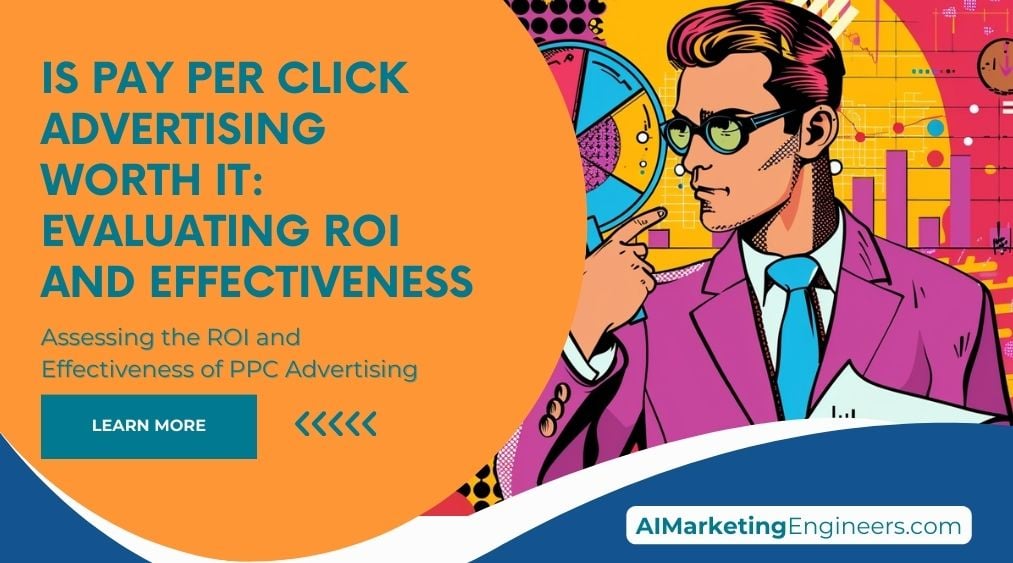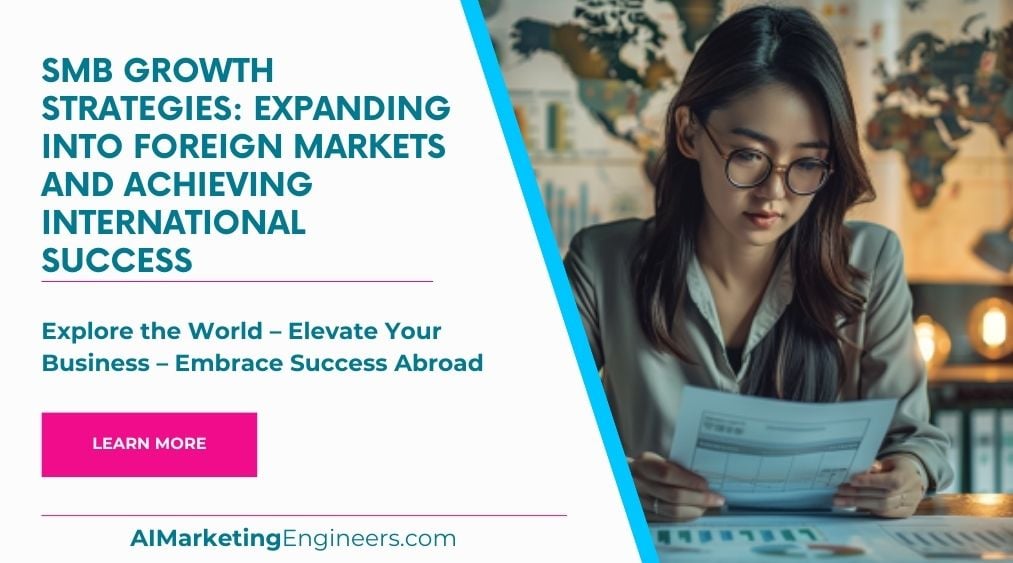Key Takeaways
✅ Personalization and Customer-Centricity: Understanding the target audience and catering to their specific needs builds loyalty. Tools like segmented email campaigns, social listening, and customer feedback mechanisms can make personalization more effective.
✅ Holistic Approach to Sustainability: Integrating social, environmental, and economic factors into your marketing strategy can ensure long-term success. Emphasize sustainable branding, green marketing campaigns, and a long-term focus in your planning.
✅ Continuous Analysis and Adaptation: Regularly analyzing marketing efforts and making data-driven decisions are crucial. Establish feedback loops, stay agile, and continually adjust strategies to stay competitive and meet changing market demands.

Introduction
In the rapidly evolving business landscape, developing a winning marketing strategy is essential for sustainable growth. Collaborating with a marketing consultant can provide the expertise and fresh perspective needed to navigate this complex environment. A seasoned consultant brings a wealth of knowledge and proven strategies to the table, helping businesses identify opportunities, streamline processes, and implement innovative solutions. By leveraging their insights, companies can create a tailored marketing plan that aligns with their unique goals and market dynamics, ensuring a solid foundation for long-term success.
Engaging a marketing consultant offers numerous benefits beyond just strategy formulation. These professionals assist in executing the plan, continuously monitoring performance, and making necessary adjustments to stay ahead of market trends. With their guidance, businesses can optimize their marketing efforts, enhance customer engagement, and achieve higher conversion rates. Ultimately, partnering with a consultant enables companies to not only achieve immediate marketing objectives but also build a resilient and adaptable framework for future growth, ensuring sustained competitive advantage in an ever-changing market.
Top Statistics
| Top Statistics | Insight |
|---|---|
| 81% of management consulting firms list attracting and developing new business as their #1 challenge. | This highlights the importance of creating a deliberate strategy to tackle this perennial issue. |
| Consultants who invest more in their business are the ones who have bigger revenues. | Investment in marketing and other resources directly correlates with higher revenue, emphasizing the need to allocate adequate budget for sustainable growth. |
| Making phone calls was the most effective form of marketing for consultants, followed by direct mail and print advertising, and networking and events. | Traditional methods like phone calls still hold a place of importance, reminding us to not overlook the basics. |
| For over half of consultants, 60% of their business comes via referral. | This points to the power of networking and client satisfaction as key drivers for business growth. |
| Marketers report that segmented emails drive 30% more opens and 50% more clickthroughs than unsegmented ones. | Customized, targeted email strategies can significantly improve engagement and conversion rates. |
Introduction to Marketing Strategy Consulting
In today's competitive business environment, a well-planned marketing strategy is a key driver for growth. Many businesses struggle to achieve their marketing goals without expert guidance, leading to wasted resources and missed opportunities. This is where a marketing consultant steps in. A consultant can provide the much-needed expertise to help businesses navigate the complex marketing landscape, ensuring their strategy is both effective and sustainable. By leveraging their industry experience and insights, consultants can offer fresh perspectives and innovative solutions. Their involvement often leads to more efficient resource allocation and higher return on investment. Overall, a marketing consultant acts as a vital catalyst for achieving strategic business objectives.
Setting Clear Business Goals
The first step in developing a winning marketing strategy is to set clear, measurable, and achievable business goals. Without these, efforts can become scattered and unproductive. With the help of a consultant, businesses can define their target audience, unique selling proposition (USP), and key performance indicators (KPIs). For instance, setting SMART (Specific, Measurable, Achievable, Relevant, and Time-bound) goals ensures that each objective is attainable and clearly defined. Clear goals provide a focused direction for all marketing efforts. They also enable businesses to track progress and measure success accurately. This strategic clarity is crucial for maintaining momentum and achieving desired outcomes.
Conducting a Thorough Marketing Audit
Before embarking on any new strategy, it's crucial to conduct a thorough marketing audit. This involves a detailed review of current marketing efforts, comprehensive competitor analysis, and extensive market research. Consultants can help identify a business's strengths, weaknesses, opportunities, and threats through a SWOT analysis. It's also essential to listen to customer feedback, analyze sales data, and stay updated on market trends to gain a full understanding of the market landscape. A marketing audit provides valuable insights into what's working and what needs improvement. It lays the groundwork for informed decision-making and strategic planning. By understanding the current state, businesses can build a more effective and targeted marketing strategy.
Creating a Customized Marketing Plan
With a clear picture of the business's current state and goals, consultants can then help to develop a customized marketing strategy. Selecting the right marketing channels—whether it's digital marketing, social media, content marketing, or traditional advertising—ensures that the strategy is well-aligned with business objectives. A marketing mix, incorporating the 4 Ps: product, price, promotion, and place, can provide a structured approach to reaching potential customers effectively. Tailoring the strategy to the specific needs and goals of the business is key to its success. A well-crafted plan considers the unique characteristics of the target audience. It also leverages the strengths of various marketing channels to maximize impact and reach.
Executing the Marketing Strategy
The next phase is implementation. Creating a detailed marketing plan, allocating a budget, and assigning necessary resources are critical steps here. Consultants play a pivotal role in executing the marketing strategy, helping to track campaign performance and measure results. Continuous monitoring is vital to identify areas of improvement quickly, ensure the strategy remains responsive to market changes, and adjust as needed. Effective execution involves clear timelines and defined responsibilities. It also requires regular communication and collaboration between all team members. By staying flexible and adaptive, businesses can navigate challenges and seize opportunities as they arise.
Measuring Results for Sustainable Growth
Measuring the success of a marketing strategy involves looking at established KPIs and metrics. Are sales numbers up? Is the target audience responding well to campaigns? Constant evaluation and adaptation to market fluctuations are necessary for long-term success. A consultant helps keep your strategy dynamic, ensuring that your business not only achieves sustainable growth but also stays ahead of competitors. Regular performance reviews provide insights into what's working and what's not. Data-driven decisions help optimize future marketing efforts. By focusing on continuous improvement, businesses can maintain a competitive edge and achieve lasting success.
AI Marketing Engineers Recommendation
Recommendation 1: Hire a Consultant to Guide Data-Driven Decision Making: Utilizing a marketing consultant can significantly enhance your ability to make data-driven decisions. According to a CMO Survey, businesses that rely on data-driven strategies see 15-20% higher marketing ROI. A consultant brings the expertise to sift through vast amounts of data, helping you identify key performance indicators and customer insights that can optimize your campaigns. This targeted approach ensures that your marketing budget is used efficiently to yield the highest returns.
Recommendation 2: Incorporate Sustainable Marketing Practices for Long-term Growth: Current trends highlight the importance of sustainability in marketing strategies. According to a Nielsen report, 81% of global respondents feel strongly that companies should help improve the environment. A consultant can help integrate sustainable practices into your marketing strategy by promoting eco-friendly products, reducing waste in advertising materials, and emphasizing corporate social responsibility in brand messaging. These practices not only align with consumer values but can also differentiate your brand in a competitive market.
Recommendation 3: Leverage Marketing Automation Tools with Expert Oversight: Marketing automation tools are crucial for sustainable growth, but they require expert oversight to be most effective. Statistics from Invesp show that marketing automation can drive a 14.5% increase in sales productivity and a 12.2% reduction in marketing overhead. A consultant can tailor these tools to your specific needs, ensuring that automated processes like email campaigns, social media scheduling, and customer segmentation are optimized for performance. This allows your team to focus on strategic initiatives while maintaining efficiency and personalizing customer interactions at scale.
Relevant Links
- Transform Your Business with AI Marketing
- Set SMART Goals for Marketing Success
- Unleash Market Penetration Strategies
- Enhance Consumer Understanding with Usage Data
Conclusion
In conclusion, creating a winning marketing strategy with the help of a consultant is a crucial step towards achieving sustainable growth. A consultant brings a wealth of expertise and an objective perspective that can uncover hidden opportunities and address existing challenges. By collaborating with a consultant, businesses can develop a tailored strategy that aligns with their unique goals and market dynamics, ensuring that every effort contributes to long-term success. The strategic insights and innovative solutions provided by a consultant can significantly enhance the effectiveness of marketing campaigns, leading to better customer engagement and increased revenue.
Moreover, the continuous support and guidance of a consultant help businesses stay agile and adaptable in an ever-changing market environment. They assist in implementing advanced technologies and optimizing processes, ensuring that marketing efforts are both efficient and impactful. This proactive approach not only improves immediate outcomes but also builds a strong foundation for future growth. By regularly revisiting and refining strategies with a consultant, businesses can maintain a competitive edge and swiftly respond to new trends and opportunities.
Ultimately, the partnership with a marketing consultant is an investment in the sustainable growth of your business. It ensures that marketing strategies are not only effective but also resilient and adaptable to future challenges. As businesses evolve, the ongoing collaboration with a consultant will provide the necessary insights and adjustments to keep marketing efforts aligned with overall business objectives. By embracing this strategic alliance, companies can achieve lasting success and robust growth in their respective markets.
FAQs
Question 1: What are the primary goals and objectives of a marketing strategy?
Answer: The primary goals and objectives of a marketing strategy include increasing brand awareness, generating leads, driving conversions, enhancing customer satisfaction, and ultimately, boosting revenue and growth.
Question 2: What is the importance of understanding the target audience in marketing?
Answer: Understanding the target audience is crucial as it enables tailoring marketing campaigns and messages that resonate with the right people, increasing the chances of conversion.
Question 3: How do you measure the success of a marketing campaign?
Answer: Success metrics vary depending on the campaign objectives but typically include key performance indicators such as ROI, conversion rates, engagement metrics, and customer feedback.
Question 4: What role does branding play in a marketing strategy?
Answer: Branding significantly impacts business results by communicating values to customers. It influences how marketing strategies are developed and executed, and a clear understanding of a company's branding is essential for effective marketing.
Question 5: How do you differentiate a business from its competitors?
Answer: Differentiation involves identifying unique selling propositions and highlighting a business's strengths to create a compelling brand. This helps to stand out in the market and attract the target audience.
Question 6: What is the significance of content marketing in a marketing strategy?
Answer: Content marketing plays a crucial role by engaging the target audience, building brand identity, and driving conversions. It involves optimizing content creation and distribution to resonate with the target audience.
Question 7: What questions should you ask a marketing consultant before engaging them?
Answer: Key questions to ask include their experience, previous projects, area of expertise, approach to creating a marketing plan, values, and how they will work with you and report back on progress.
Question 8: How do you ensure a marketing consultant is a good fit for your business?
Answer: Ensure a good fit by assessing their values, approach, and expertise. Also, ask for references and feedback from previous clients to gauge their performance and compatibility.
Question 9: What are the essential skills for a successful marketing consultant?
Answer: Essential skills include creativity, analytical thinking, effective communication, adaptability, and the ability to work collaboratively. These skills enable consultants to develop and execute effective marketing strategies.
Question 10: How do you handle criticism or feedback on your marketing work?
Answer: View criticism as an opportunity for growth, be open to feedback, and use it to refine strategies and improve performance. This helps to build trust with clients and enhance the quality of marketing services.
Academic References
- Johanson, J., & Vahlne, J.-E. (2009). Internationalization Strategies for Sustainable Growth of Small- and Medium-Sized Enterprises. Journal of International Business Studies, 40(9), 1411-1431. This study explores strategies used by SME leaders to expand business internationally for sustainable growth. It highlights the importance of sequential internationalization efforts and introduces the Uppsala Internationalization Process Model (UIPM) as a guiding framework.
- Kumar, V., Andersson, T., & Wright, L. (2020). Importance of Sustainable Marketing Initiatives for Supporting the Sustainable Development Goals. Journal of Marketing, 84(1), 1-23. This research emphasizes the benefits of sustainable marketing initiatives for both the environment and a company's bottom line, supporting the United Nations' Sustainable Development Goals (SDGs). The article outlines key strategies and case studies that illustrate the positive impacts of such initiatives.











